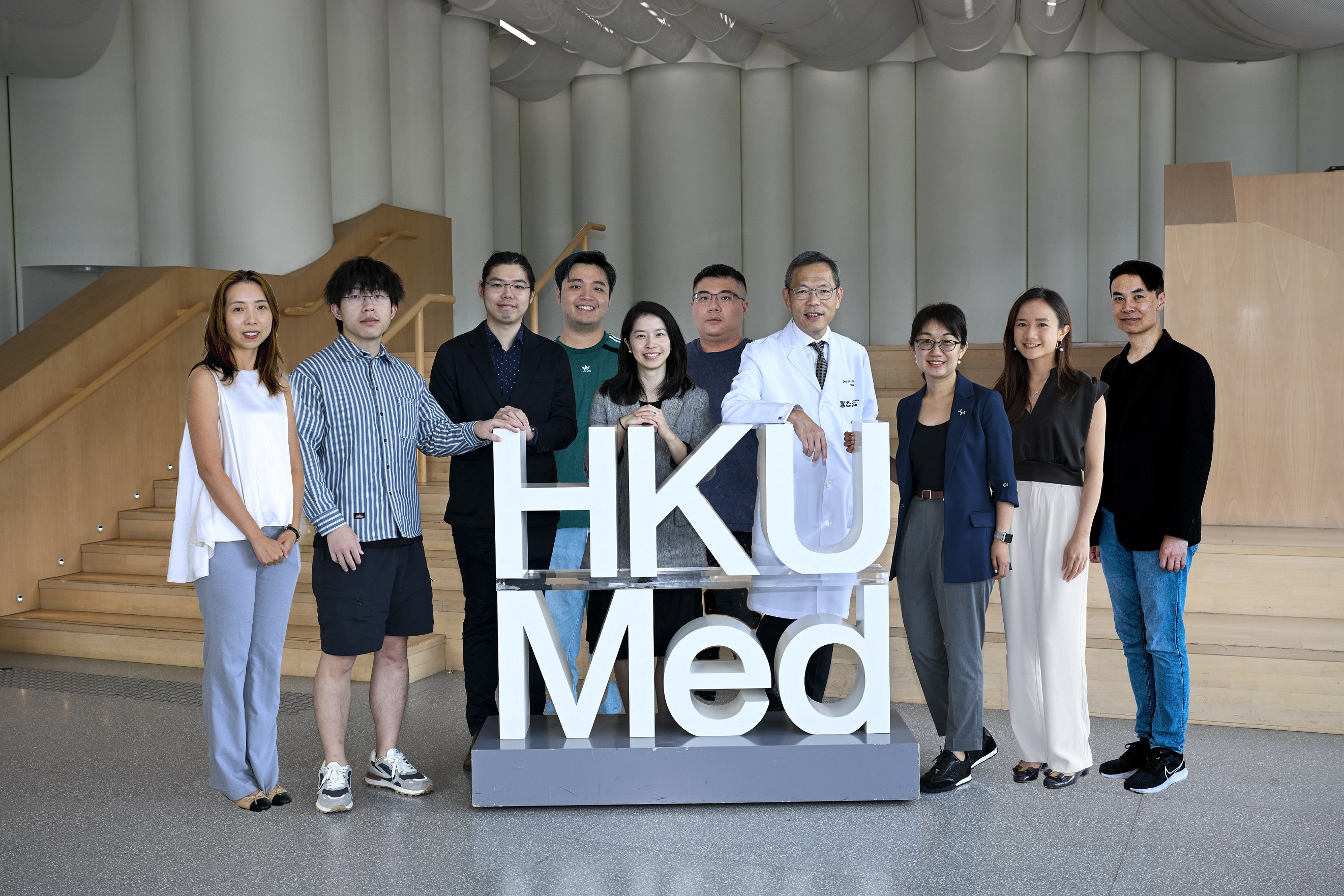25 July 2024
A research team from the LKS Faculty of Medicine of the University of Hong Kong (HKUMed) performed a cost-effectiveness analysis of treatment strategies for patients in Hong Kong with rheumatoid arthritis. The researchers found that for patients who had an inadequate response to the first-line therapy of methotrexate, using biosimilar disease-modifying anti-rheumatic drugs (DMARDs) is more cost-effective than the commonly used leflunomide. By adopting biosimilars, healthcare institutions in Hong Kong can optimise resource allocation, improve overall patient outcomes, and establish a more efficient and sustainable health service model. The study findings were published in JAMA Network Open journal [link to the publication].
Background
Rheumatoid arthritis (RA) is a prevalent chronic inflammatory disorder impacting patients' joints and overall quality of life. Methotrexate is the standard first-line therapy, but it fails in over half of patients. Clinical guidelines recommend adding or switching to other conventional synthetic DMARDs (csDMARDs), such as leflunomide, after methotrexate failure in patients without additional risk factors. Recent evidence[1]-[3] suggests that the biologic DMARDs (bDMARDs) present a better treatment response and retention rate than csDMARDs in both clinical trials and real-world practice. However, the relatively high cost of biologic originators limits their use. Emerging biosimilar DMARDs (biosimilar adalimumab and biosimilar infliximab) have comparable efficacy and safety to their reference biologics and reduce cost by more than half in Hong Kong, allowing patients to access the optimal treatment earlier.
Research methods and findings
The research team retrospectively analysed data from the local RA cohort of 25,099 patients in total, complemented with data from landmark trials, and developed a disease simulation model to compare the lifetime healthcare costs and quality-adjusted life years (QALYs) for three different treatment regimens: biosimilar infliximab (HK$1,185,096, QALYs:15.35); biosimilar adalimumab (HK$ 1,131,360, QALYs:15.55); and leflunomide (HK$1,203,037, QALYs:14.82).
The analysis suggested that biosimilar treatment strategies, particularly biosimilar adalimumab, appeared to be the most cost-effective, with lower healthcare costs and greater QALY improvement than leflunomide. The projected budget savings were HK$17,941 and HK$71,677 per patient treated by biosimilar infliximab and biosimilar adalimumab, respectively. The price of biosimilar DMARDs in Hong Kong falls within the mid-range (ranked 14th among 29 high-income countries/regions) in the global context.
Research significance
According to the latest Hospital Authority Drug Formulary of Hong Kong, bDMARDs are currently listed as self-financed items with a safety net. Patients must fulfil financial and clinical eligibility criteria for the Samaritan Fund to buy bDMARDs at subsidised prices. Otherwise, they have to pay the full cost themselves. Nearby Asian countries and regions such as Japan, Korea and Taiwan have already included at least one bDMARD in their public formularies, indicating the potential for Hong Kong to refine its healthcare policies and expedite the addition of these treatments to the public formulary.
‘Adopting biosimilars improves patients' quality of life and reduces medical costs from the perspective of public healthcare in Hong Kong,’ said Professor Shirley Li Xue, who led the research study. ‘Our study is a good attempt to apply “health economics” to inform decision-making in drug introduction and formulary listing. This systematic evaluation process helps decision-makers assess the efficacy, safety and cost-effectiveness of new treatments by providing transparent, evidence-based insights.’
‘Efficient value-based assessment mechanisms can significantly reduce drug approval and formulary listing timelines,’ Professor Li added, ‘which is crucial for ensuing stakeholder engagement and optimising resource allocation in the healthcare system.’
About the research team
The HKUMed research was led by Professor Shirley Li Xue, Assistant Professor, Department of Medicine, School of Clinical Medicine, and Department of Pharmacology and Pharmacy. The joint-first authors are Peng Kuan and Dr Shirley Chan Chiu-wai, Department of Medicine, School of Clinical Medicine. Other co-authors include Dr Winnie Yeung Wan-yin, Jiao Yuanshi and Dean of Medicine Professor Chak-sing Lau, Department of Medicine, School of Clinical Medicine; Wang Yang, School of Nursing; and Dr Franco Cheng Wing-tak, Professor Esther Chan Wai-yin and Professor Ian Wong Chi-kei, Department of Pharmacology and Pharmacy.
Acknowledgements
The research was funded by the Early Career Scheme, the Research Grants Council and the University Grants Committee of Hong Kong.
[1] Fleischmann, R., et al. (2014). "Short-term efficacy of etanercept plus methotrexate vs combinations of disease-modifying anti-rheumatic drugs with methotrexate in established rheumatoid arthritis." Rheumatology 53(11): 1984-1993.
[2] Huang, Y., et al. (2023). "Real-world Comparative Effectiveness of Methotrexate-based Combinations for Rheumatoid Arthritis: A Retrospective Cohort Study." Clin Ther 45(9): e177-e186.
[3] van Vollenhoven, R. F., et al. (2012). "Conventional combination treatment versus biological treatment in methotrexate-refractory early rheumatoid arthritis: 2 year follow-up of the randomised, non-blinded, parallel-group Swefot trial." The Lancet 379(9827): 1712-1720
Media enquiries
Please contact LKS Faculty of Medicine of The University of Hong Kong by email (medmedia@hku.hk).


Follow HKUMed